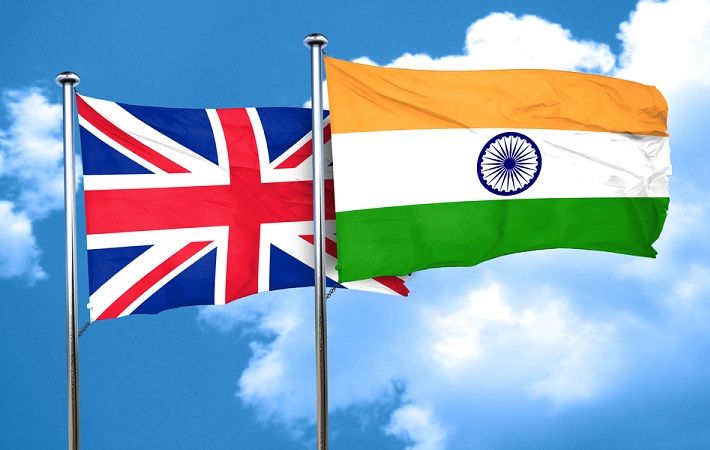An MBA is often considered a golden ticket to career advancement, higher salaries, and global opportunities. However, where you earn your degree can have a significant impact on your earning potential. India and the UK are two popular destinations for MBA aspirants, but the difference in salary expectations post-graduation can be stark. This blog provides an in-depth comparison of the average MBA salary in India and the UK, analyzing the factors influencing earnings and career growth in both countries.
1. Understanding the Salary Landscape: India vs. UK
MBA graduates in India and the UK enter vastly different job markets, each with its own economic conditions, cost of living, and industry demands. Here’s a broad comparison:
- India: The average salary of an MBA graduate ranges between ₹8–25 LPA (Lakhs Per Annum), depending on the institute, specialization, and industry.
- UK: In the UK, MBA graduates can expect an average salary between £50,000–£100,000 per year, which translates to roughly ₹52–105 LPA based on currency exchange rates.
At first glance, the UK seems to offer significantly higher salaries. However, multiple factors need to be considered before drawing conclusions.
2. Factors Influencing MBA Salaries
A. Reputation of the Business School
The ranking and prestige of the institution play a crucial role in determining salary potential.
- India: Graduates from IIM Ahmedabad, IIM Bangalore, ISB Hyderabad, and other top-tier institutions can command salaries of around ₹25–35 LPA.
- UK: Alumni from London Business School (LBS), Oxford Saïd, and Cambridge Judge often earn £80,000–£120,000 (₹84–126 LPA) within three years post-graduation.
Tier-2 and Tier-3 MBA colleges in both countries tend to offer lower salary packages, making the choice of school critical.
B. Industry & Job Role
The sector you choose significantly impacts your earnings.
India (Approx. Salary Ranges):
- Consulting: ₹18–30 LPA (McKinsey, BCG, Bain)
- Finance: ₹15–28 LPA (Goldman Sachs, Morgan Stanley)
- IT & Tech: ₹12–22 LPA (Google, Microsoft, Infosys)
- FMCG: ₹10–18 LPA (HUL, Nestlé, P&G)
UK (Approx. Salary Ranges):
- Consulting: £75,000–£120,000 (McKinsey, Deloitte, PwC)
- Finance: £70,000–£130,000 (JP Morgan, Barclays, HSBC)
- Tech: £55,000–£100,000 (Amazon, Google, Facebook)
- FMCG: £50,000–£80,000 (Unilever, Reckitt Benckiser)
Consulting and finance roles tend to pay the highest in both countries, but UK salaries are higher in absolute terms.
C. Work Experience and Pre-MBA Salary
- India: Fresh graduates or those with 2–3 years of experience before an MBA usually earn ₹10–18 LPA post-MBA.
- UK: Pre-MBA work experience is crucial. Applicants often have 5–7 years of professional experience before an MBA, leading to post-MBA salaries of £70,000+ (roughly ₹73 LPA+) right after graduation.
Many UK MBA programs require a few years of work experience, which elevates the average post-MBA salary compared to India, where many students enroll immediately after their undergraduate degrees.

3. Cost of Living and ROI Considerations
While UK salaries are higher, the cost of living needs to be factored in:
| Expense | India (₹ per month) | UK (£ per month) |
|---|---|---|
| Rent (1-BHK) | ₹30,000 (Mumbai, Delhi) | £1,500 (London) |
| Groceries | ₹8,000 | £150 |
| Transport | ₹2,000 | £150 |
| Miscellaneous | ₹15,000 | £500 |
| Total | ₹55,000 | £2,300–£2,400 (₹2.5L) |
- In India, an ₹18 LPA salary allows for comfortable savings.
- In the UK, a £70,000 (₹73 LPA) salary provides a similar lifestyle due to higher costs.
4. Taxation and Take-Home Salary
- India: An MBA graduate earning ₹20 LPA takes home approximately ₹14–15 LPA after taxes.
- UK: A £70,000 salary (₹73 LPA) results in a net income of about £48,000 (₹50 LPA) post-tax.
Despite higher UK salaries, taxation and living expenses reduce the net advantage over India.
5. Career Growth and Long-Term Prospects
- India: MBA graduates can expect salary hikes of 10–20% annually, reaching ₹50–60 LPA in senior roles within 10 years.
- UK: Career growth is steady, with mid-career professionals in investment banking or consulting often earning £150,000+ (₹158 LPA).
Many Indian MBA graduates eventually switch to international roles for better exposure. Meanwhile, UK graduates generally have easier access to global career paths from the start.
6. Visa and Work Opportunities Post-MBA
- India: No visa concerns for Indian citizens, but the job market can be competitive.
- UK: The Graduate Route Visa allows MBA grads to stay and work for 2 years post-graduation, making it an attractive option. However, finding a visa-sponsored job can be challenging, and certain sectors may be saturated.
Final Verdict: Which is the Better Choice?
| Factor | India | UK |
|---|---|---|
| Average Salary | ₹10–25 LPA | ₹50–100 LPA |
| Cost of Living | Low | High |
| Taxation | Moderate | High |
| Career Growth | Fast in startups, steady in MNCs | Structured but global scope |
| Job Market | Competitive but growing | High-paying but visa-dependent |
| Return on Investment | High (low tuition costs) | High but slower due to costs |
- India: Ideal for faster ROI and lower debt, especially for those graduating from top-tier institutes like IIMs or ISB.
- UK: Offers greater global exposure, higher salary potential, and long-term international career growth, but comes with higher costs and taxes.
Ultimately, your choice should align with your career aspirations, financial situation, and long-term goals. Whether in India or the UK, an MBA can be a game-changer—if strategically planned.






